| Weight | 1 lbs |
|---|---|
| Dimensions | 9 × 5 × 2 in |
| host | rabbit |
| isotype | IgG |
| clonality | polyclonal |
| concentration | 1 mg/mL |
| applications | ICC/IF, WB |
| reactivity | BACE2 (CT) |
| available sizes | 100 µg |
rabbit anti-BACE2 (CT) polyclonal antibody 4312
$445.00
Antibody summary
- Rabbit polyclonal to BACE2 (CT)
- Suitable for: ELISA,WB,IHC-P
- Isotype: IgG
- 100 µg
rabbit anti-BACE2 (CT) polyclonal antibody 4312
| antibody |
|---|
| Tested applications WB,IHC,IHC,ELISA |
| Recommended dilutions Immunoblotting: use at 1:500-1:1,000 dilution. Positive control: Human heart tissue lysate. |
| Immunogen Peptide corresponding to aa 496- 511 of human BACE2. |
| Size and concentration 100µg and lot specific |
| Form liquid |
| Storage Instructions This antibody is stable for at least one (1) year at -20°C. Avoid multiple freeze-thaw cycles. |
| Storage buffer PBS, pH 7.4. |
| Purity peptide affinity purification |
| Clonality polyclonal |
| Isotype IgG |
| Compatible secondaries goat anti-rabbit IgG, H&L chain specific, peroxidase conjugated, conjugated polyclonal antibody 9512 goat anti-rabbit IgG, H&L chain specific, biotin conjugated polyclonal antibody 2079 goat anti-rabbit IgG, H&L chain specific, FITC conjugated polyclonal antibody 7863 goat anti-rabbit IgG, H&L chain specific, Cross Absorbed polyclonal antibody 2371 goat anti-rabbit IgG, H&L chain specific, biotin conjugated polyclonal antibody, crossabsorbed 1715 goat anti-rabbit IgG, H&L chain specific, FITC conjugated polyclonal antibody, crossabsorbed 1720 |
| Isotype control Rabbit polyclonal - Isotype Control |
| target relevance |
|---|
| Protein names Beta-secretase 2 (EC 3.4.23.45) (Aspartic-like protease 56 kDa) (Aspartyl protease 1) (ASP1) (Asp 1) (Beta-site amyloid precursor protein cleaving enzyme 2) (Beta-site APP cleaving enzyme 2) (Down region aspartic protease) (DRAP) (Memapsin-1) (Membrane-associated aspartic protease 1) (Theta-secretase) |
| Gene names BACE2,BACE2 AEPLC ALP56 ASP21 CDA13 UNQ418/PRO852 |
| Protein family Peptidase A1 family |
| Mass 56180Da |
| Function FUNCTION: Responsible for the proteolytic processing of the amyloid precursor protein (APP). Cleaves APP, between residues 690 and 691, leading to the generation and extracellular release of beta-cleaved soluble APP, and a corresponding cell-associated C-terminal fragment which is later released by gamma-secretase. It has also been shown that it can cleave APP between residues 671 and 672 (PubMed:10591213, PubMed:11083922, PubMed:11423558, PubMed:15857888, PubMed:16816112). Involved in the proteolytic shedding of PMEL at early stages of melanosome biogenesis. Cleaves PMEL within the M-beta fragment to release the amyloidogenic PMEL luminal fragment containing M-alpha and a small portion of M-beta N-terminus. This is a prerequisite step for subsequent processing and assembly of PMEL fibrils into amyloid sheets (PubMed:23754390). Responsible also for the proteolytic processing of CLTRN in pancreatic beta cells (PubMed:21907142). {ECO:0000269|PubMed:10591213, ECO:0000269|PubMed:11083922, ECO:0000269|PubMed:11423558, ECO:0000269|PubMed:15857888, ECO:0000269|PubMed:16816112, ECO:0000269|PubMed:21907142, ECO:0000269|PubMed:23754390}. |
| Catalytic activity CATALYTIC ACTIVITY: Reaction=Broad endopeptidase specificity. Cleaves Glu-Val-Asn-Leu-|-Asp-Ala-Glu-Phe in the Swedish variant of Alzheimer's amyloid precursor protein.; EC=3.4.23.45; Evidence={ECO:0000269|PubMed:11083922, ECO:0000269|PubMed:21907142}; |
| Subellular location SUBCELLULAR LOCATION: Cell membrane {ECO:0000269|PubMed:21907142}; Single-pass type I membrane protein {ECO:0000255}. Golgi apparatus {ECO:0000269|PubMed:11423558}. Endoplasmic reticulum. Endosome. Melanosome {ECO:0000269|PubMed:23754390}. Note=Colocalizes with PMEL in stage I and II melanosomes. {ECO:0000269|PubMed:23754390}. |
| Tissues TISSUE SPECIFICITY: Brain. Present in neurons within the hippocampus, frontal cortex and temporal cortex (at protein level). Expressed at low levels in most peripheral tissues and at higher levels in colon, kidney, pancreas, placenta, prostate, stomach and trachea. Expressed at low levels in the brain. Found in spinal cord, medulla oblongata, substantia nigra and locus coruleus. Expressed in the ductal epithelium of both normal and malignant prostate. {ECO:0000269|PubMed:10591213, ECO:0000269|PubMed:10677483, ECO:0000269|PubMed:10683441, ECO:0000269|PubMed:10749877, ECO:0000269|PubMed:10838186, ECO:0000269|PubMed:10965118, ECO:0000269|PubMed:11083922}. |
| Structure SUBUNIT: Monomer. Interacts with RTN3 and RTN4. {ECO:0000269|PubMed:16305800, ECO:0000269|PubMed:16965550}. |
| Post-translational modification PTM: Undergoes autoproteolytic cleavage. {ECO:0000269|PubMed:11316808, ECO:0000269|PubMed:11423558}.; PTM: Glycosylated. {ECO:0000269|PubMed:10683441, ECO:0000269|PubMed:11083922}. |
| Target Relevance information above includes information from UniProt accession: Q9Y5Z0 |
| The UniProt Consortium |
Data
Publications
| pmid | title | authors | citation |
|---|---|---|---|
| We haven't added any publications to our database yet. | |||
Protocols
| relevant to this product |
|---|
| Western blot IHC ICC |
Documents
| # | SDS | Certificate | |
|---|---|---|---|
| Please enter your product and batch number here to retrieve product datasheet, SDS, and QC information. | |||
Only logged in customers who have purchased this product may leave a review.
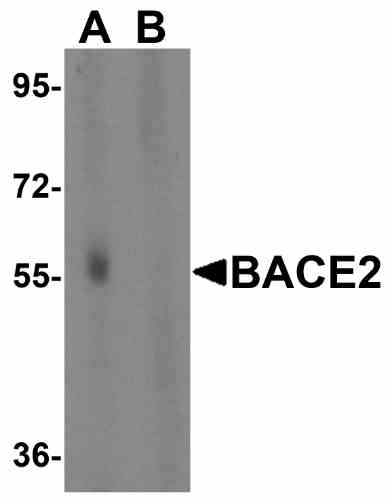

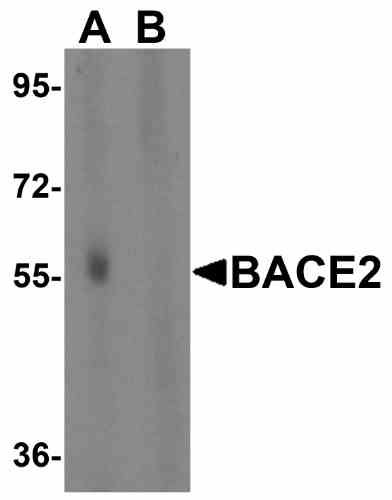

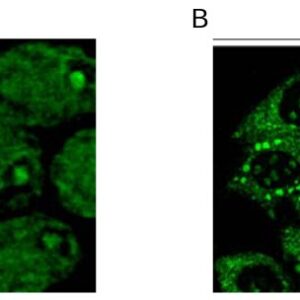
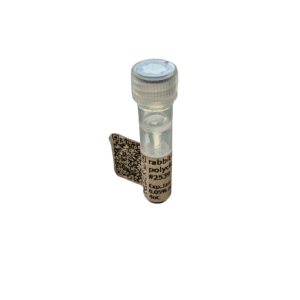
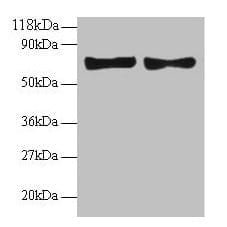
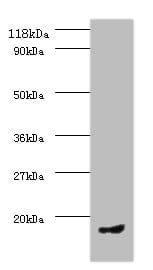

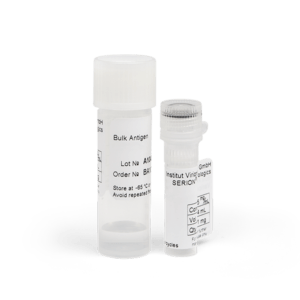
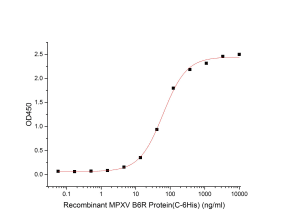
Reviews
There are no reviews yet.